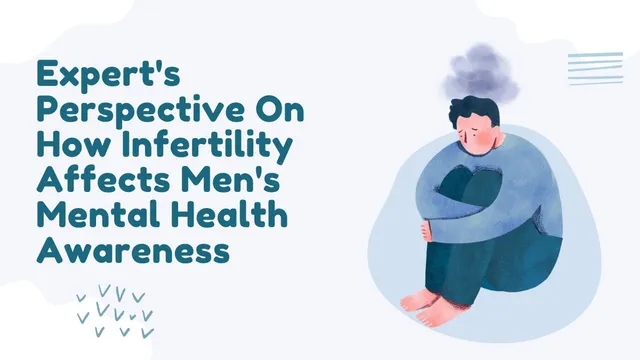- By Priyanka Munshi
- Fri, 08 Nov 2024 05:06 PM (IST)
- Source:JND
Infertility is a life-altering journey that impacts not just the body but also the mind. While conversations about infertility often center on women, it’s important to recognize that men face their own unique emotional challenges along this journey. Infertility can leave men feeling isolated, frustrated, and emotionally drained. Let’s explore how infertility affects men's mental health and how we can better support them in this often-overlooked struggle. In a conversation with Jagran English, Dr. Sneha Sathe, Clinical Director and Fertility Consultant at Nova IVF Fertility in Chembur, Mumbai, shared insights on understanding how infertility affects men’s mental health.
The Emotional Toll Of Infertility On Men
Infertility is a growing concern worldwide, affecting millions of couples. For men, it can be caused by various factors such as hormonal imbalances, lifestyle choices (e.g., smoking, excessive alcohol consumption), low sperm count, or structural issues affecting sperm transport. Regardless of the cause, the emotional impact can be profound.
Societal expectations often emphasize fatherhood as a cornerstone of masculinity. When faced with infertility, the inability to conceive can create feelings of inadequacy and failure. Many men silently carry the weight of this disappointment, which can lead to significant mental health challenges.
Mental Health Challenges Men Face
Emotional Distress
Men experiencing infertility often endure intense emotional distress, facing emotions like anger, frustration, and sadness. The feeling of being “helpless” can take a toll, especially when fertility treatments or attempts repeatedly fail. Emotional outbursts may become more frequent, sometimes misdirected at themselves or their partners, which can strain relationships.
Social Isolation
Infertility can also lead to social withdrawal. Many men feel uncomfortable discussing their fertility issues, fearing judgment or pity. They may avoid social gatherings where questions about parenthood may arise. Over time, this withdrawal can deepen feelings of loneliness and isolation, compounding their emotional distress.
Depression And Anxiety
Men with infertility often experience symptoms of depression and anxiety, especially as the journey becomes prolonged. These mental health issues are rooted in feelings of failure or inadequacy, compounded by the stress of medical treatments and societal expectations. Even daily tasks, like going to work or maintaining friendships, may become overwhelming.
Also Read: World Pneumonia Day 2024: Doctor Lists Ways To Prevent This Lung Infection
Strained Relationships
Infertility can put a significant strain on romantic relationships. Men may struggle to express their emotions openly, leading to a breakdown in communication with their partners. While infertility affects both partners emotionally, men may feel an added pressure to "stay strong" or avoid burdening their spouse, which can lead to misunderstandings, resentment, and tension in the relationship.
Unhealthy Coping Mechanisms
Coping with infertility can push some men toward unhealthy behaviors, such as excessive drinking, smoking, or neglecting their health. These coping mechanisms may provide temporary relief but ultimately exacerbate the problem, both physically and mentally.
Seeking Help And Support
Acknowledging the mental health impact of infertility is the first step toward healing. Men must realize that their emotions are valid and that seeking help is a sign of strength, not weakness.
Therapeutic Support
Consulting a mental health professional who specializes in infertility or male reproductive health can provide a safe space to explore emotions and develop healthy coping strategies. Cognitive Behavioral Therapy (CBT), mindfulness, and counseling are valuable approaches that can help men manage feelings of stress and anxiety.
Communication
Open communication with one’s partner is crucial. Sharing the emotional weight of infertility rather than internalizing it is essential. Couples may also consider joint therapy to navigate these challenges together.
Also Read: Expert Lists Fertility Preservation Options For Individuals And Couples
Also Read: World Pneumonia Day 2024: Doctor Lists Ways To Prevent This Lung Infection
Support Groups
Joining a support group with other men facing infertility can help alleviate feelings of isolation. Connecting with others who understand the unique pressures of infertility can be incredibly validating and uplifting.
Finally, Dr. Sneha Sathe emphasizes that infertility is undeniably challenging, but men must know they are not alone. Support is available, and by addressing both the physical and emotional aspects of infertility, men can better navigate this difficult path. Recognizing that mental health is just as important as physical health can make a significant difference in coping with infertility. Let’s encourage men to speak openly about their struggles with infertility. By breaking the silence and addressing the emotional challenges, we can foster a more compassionate and supportive environment for all.

